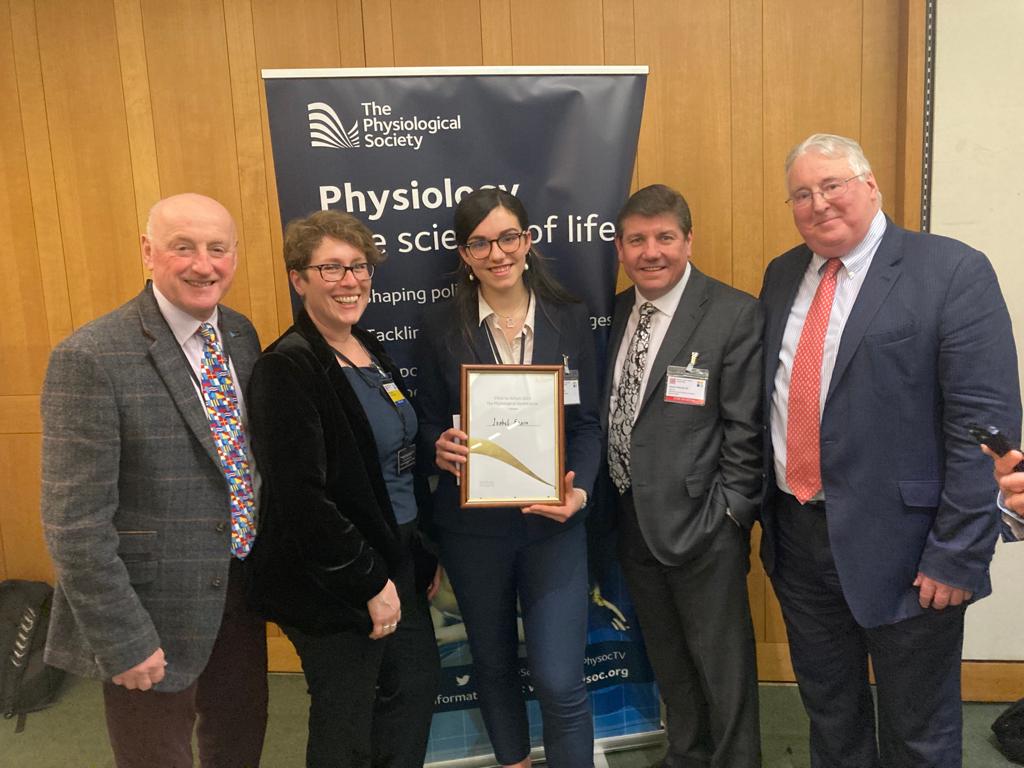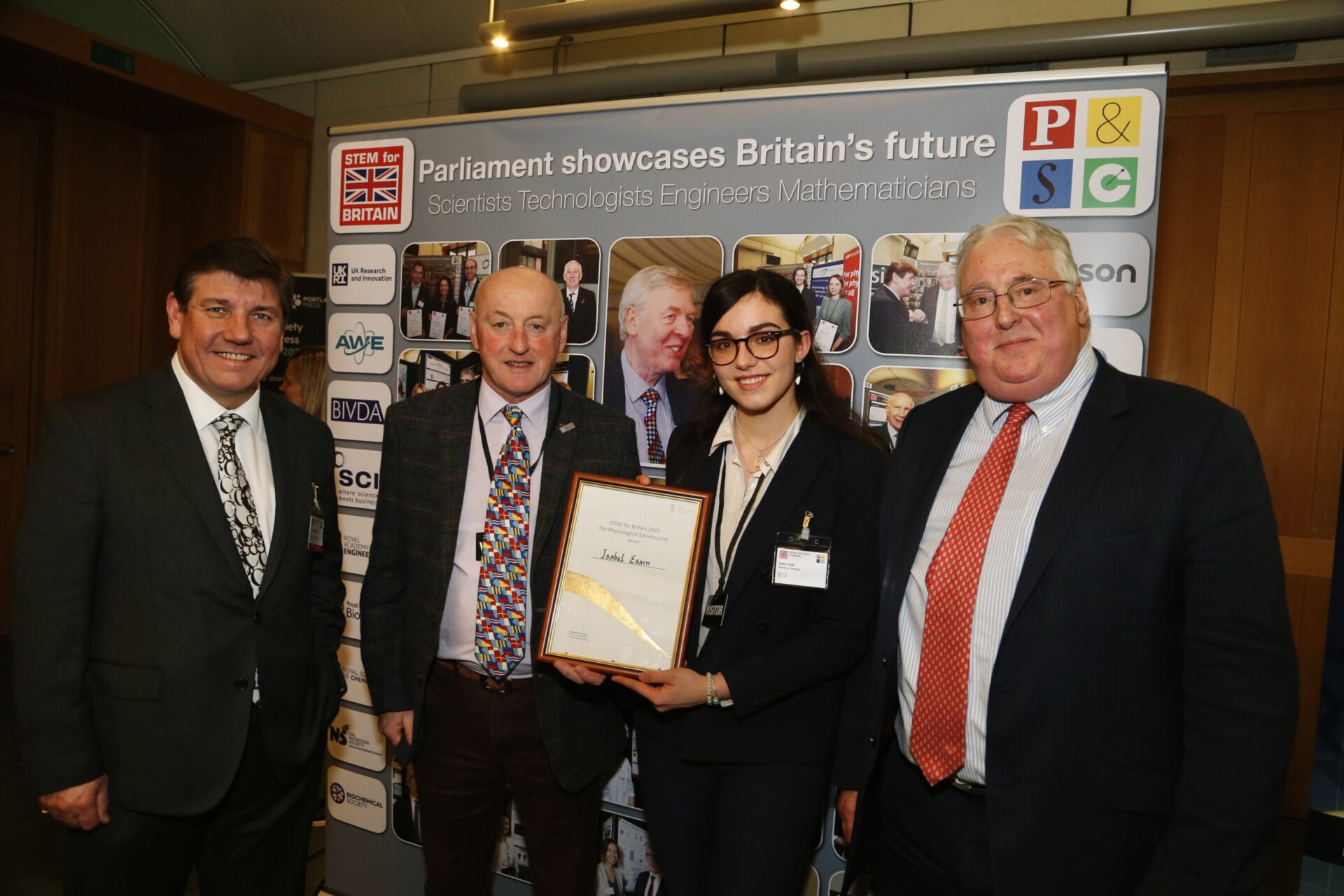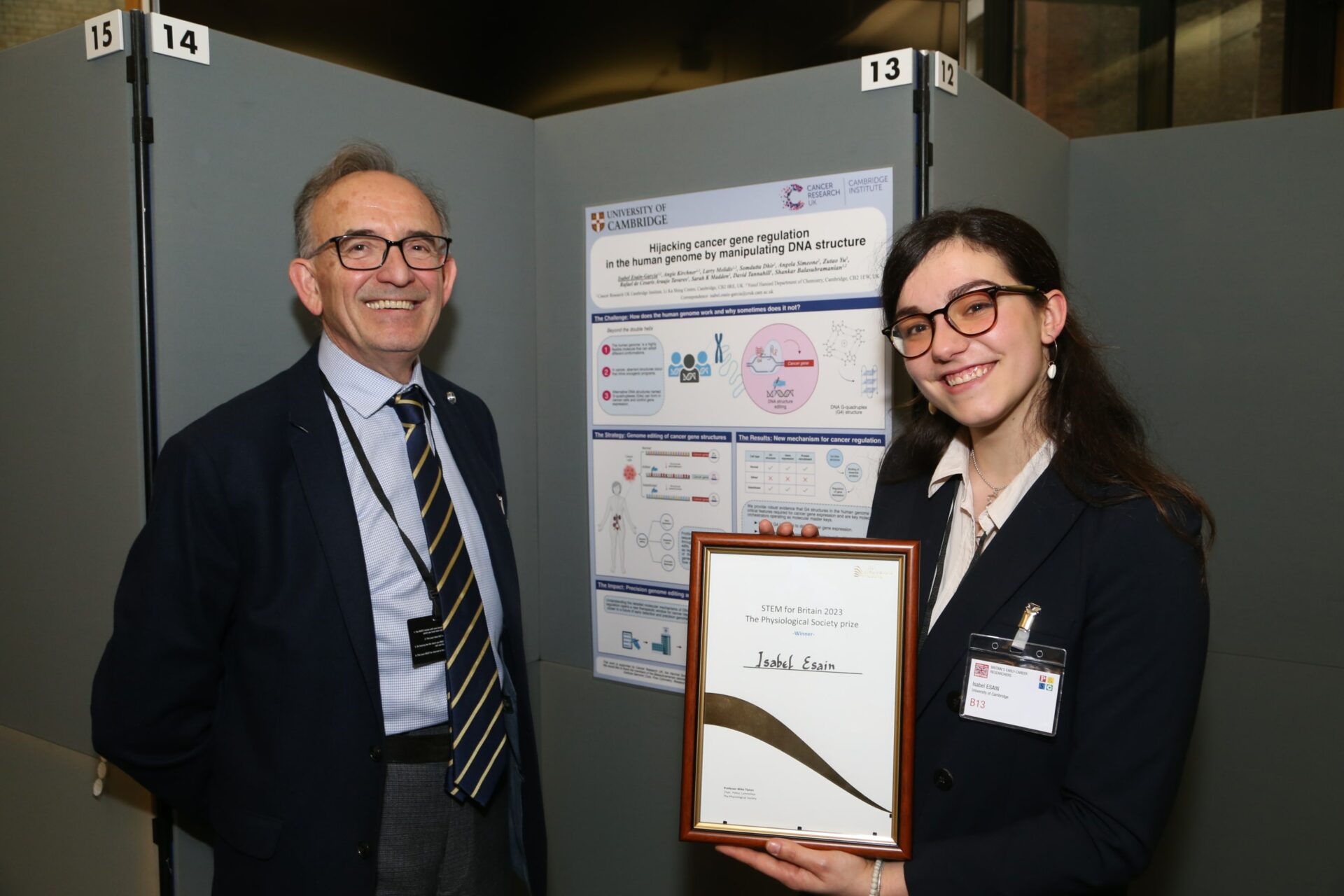The Physiological Society Prize has been awarded to Isabel Esain from University of Cambridge, UK at STEM for BRITAIN.

On Monday 6 March, early-career researcher scientists, politicians and a panel of expert judges attended Parliament for STEM for BRITAIN, a major scientific poster competition and exhibition. The event is organised by the Parliamentary & Scientific Committee to give members of both Houses of Parliament an insight into the outstanding research being carried out at UK universities by early-career researchers.
The Physiological Society Prize was judged by a panel of physiologists, including Chair of The Society’s Policy Committee Chair, Professor Mike Tipton, and Chair of Communities Committee, Dr Lucy R Green.
Speaking after presenting the award to Isabel, Professor Tipton said:
“The Physiological Society is proud to support STEM for Britain, which gives the opportunity for early career physiologists to talk directly to politicians about their research.
“Every year we award The Physiological Society Prize to an early career researcher in physiology whose research stands out for being novel, robust and important. This year was no different. I was really impressed by the first-class science on display. Awarding Isabel The Physiological Society Prize is a testament to her excellent research and also shows how critical physiology is for understanding how cancer is regulated and the potential for developing new cancer treatments.”
Isabel was shortlisted from hundreds of applicants to appear in Parliament. Isabel is a final year PhD student in Medical Sciences at the Department of Chemistry and Cancer Research UK Institute, University of Cambridge, where she completed a genome editing project studying the human genome and the structure of cancer genes. Her poster ‘Hijacking cancer gene regulation in the human genome by manipulating DNA structure’ discusses how DNA sequencing was used to identify critical structures in the human genome that regulate the expression of cancer genes and enable the disease to progress.

On winning The Physiological Society Prize, Isabel said:
“I am delighted to have been awarded this prize and thank The Physiological Society for my award. It was a great experience to present my research in Parliament and to get feedback and questions from both academics and policy-makers. I would also like to take this opportunity to thank my laboratory colleagues and my supervisors Professor Sir Shankar Balasubramanian and Dr David Tannahill (University of Cambridge) for making this project possible.
“Being selected as one of the finalists and having the chance to present my discoveries in front of MPs and members of the parliamentary scientific committee was an incredibly inspiring experience. It definitely made me think about how the work I do fits into the wider scientific community and how fundamental being able to communicate the key findings to a broad audience is. All the research in the room was really ground-breaking, that’s why I was thrilled when I was awarded The Physiological Society prize for my work on DNA structure and its importance for regulating the expression of cancer genes in the human genome. Seeing how progress can be driven on different levels, from a laboratory bench to influencing science policy making, really inspires me to continue working hard and strive to take us closer to a future of precision medicine tools.”
Stephen Metcalfe MP, Chairman of the Parliamentary and Scientific Committee, said:
“This annual competition is an important date in the parliamentary calendar because it gives MPs an opportunity to speak to a wide range of the country’s best young researchers.
“These early career engineers, mathematicians and scientists are the architects of our future and STEM for BRITAIN is politicians’ best opportunity to meet them and understand their work.”
The Parliamentary and Scientific Committee runs the event in collaboration with The Physiological Society and a range of learned and professional societies.

